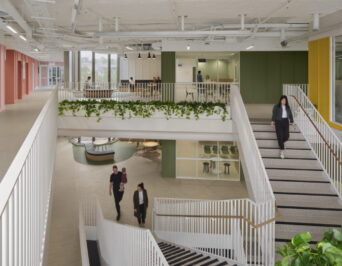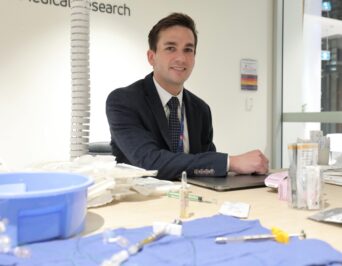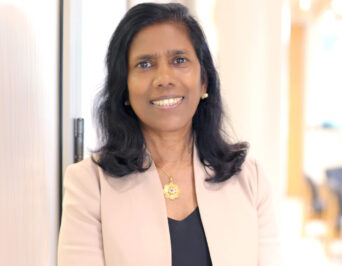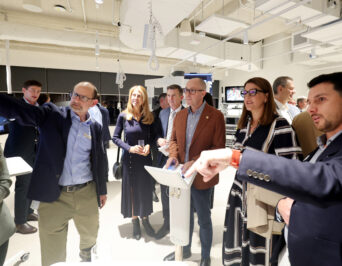
Research lead: Prof Mark Parsons
Research area: Neurology/Stroke
Team: Dr Dennis Cordato, Dr Helen Badge, Dr Michael Cammit, Dr Khoi Dang, Timmy Phan, Dr Chris Blair, and UNSW medical students Denna Aysha and Jessica Ly
What was the health problem that led you to carry out your research?
A stroke occurs when a blocked or burst artery in the brain prevents blood flow, causing cells to die from insufficient oxygen. Stroke is a leading cause of mortality and disability in Australia, with significant socio-economic impacts. The Vietnamese community in South Western Sydney (SWS) faces unique stroke risk factors and outcomes compared to other Australians. Research indicated that this community was less likely to call an ambulance or get to the hospital in time to access stroke treatments (52% versus 68% for Australian-born patients). Consequently, they experienced longer hospital stays and higher rates of long-term disability. Community engagement highlighted that the population was reluctant to call an ambulance when a stroke occurred, largely because of a lack of confidence in speaking English.
Describe the research achievement and its impact.
We completed research to describe specific risk factors and compare the level of access to care and outcomes for the Vietnamese community compared to other Australians. We formed a team comprising stroke researchers, multicultural health literacy representatives and community members who used these findings to co- design, test and evaluate stroke education tailored to their needs. This enabled strong engagement in health activities and led to the co-design of the phrase ‘Stroke, FAST, Vietnamese’ to use when calling an ambulance if someone was suspected of having a stroke. We promoted stroke knowledge and education messaging at community events, community centres, and early childhood centres, as well as multicultural health groups. We delivered education in Vietnamese about recognising stroke symptoms, the importance of calling triple zero and how to reduce the risk of stroke. We also shared some of The Stroke Foundation’s resources translated into Vietnamese.
How was the work unique or pioneering?
Our research has engaged over 750 members of the Vietnamese community. The benefit of our research lies in its ability to foster behaviour change through stroke prevention education delivered by trusted educators (health and community). This approach improved, and continues to improve, access to timely stroke treatment and enhances health outcomes. Our methodology’s uniqueness stems from its community co-design, ensuring it is culturally appropriate and engaging for diverse members, including young people, men, community agency workers and older people.
The outcome of our research has increased confidence within the Vietnamese community to recognise stroke symptoms and promptly seek help by calling an ambulance. Our collaborators include SWSLHD Neurology, UNSW South West Clinical School, SWSLHD Multicultural Health Unit, Australian Catholic University,
Vietnamese community groups and local community members.
What is the broader implication of the research?
Our research highlights that co-designing culturally suitable public health education significantly improves care access and outcomes. This underscores the importance of community-led education and co-designed solutions to address the health needs of diverse populations. We plan to adapt our approach to improve stroke prevention and outcomes for other CALD communities in South Western Sydney.




